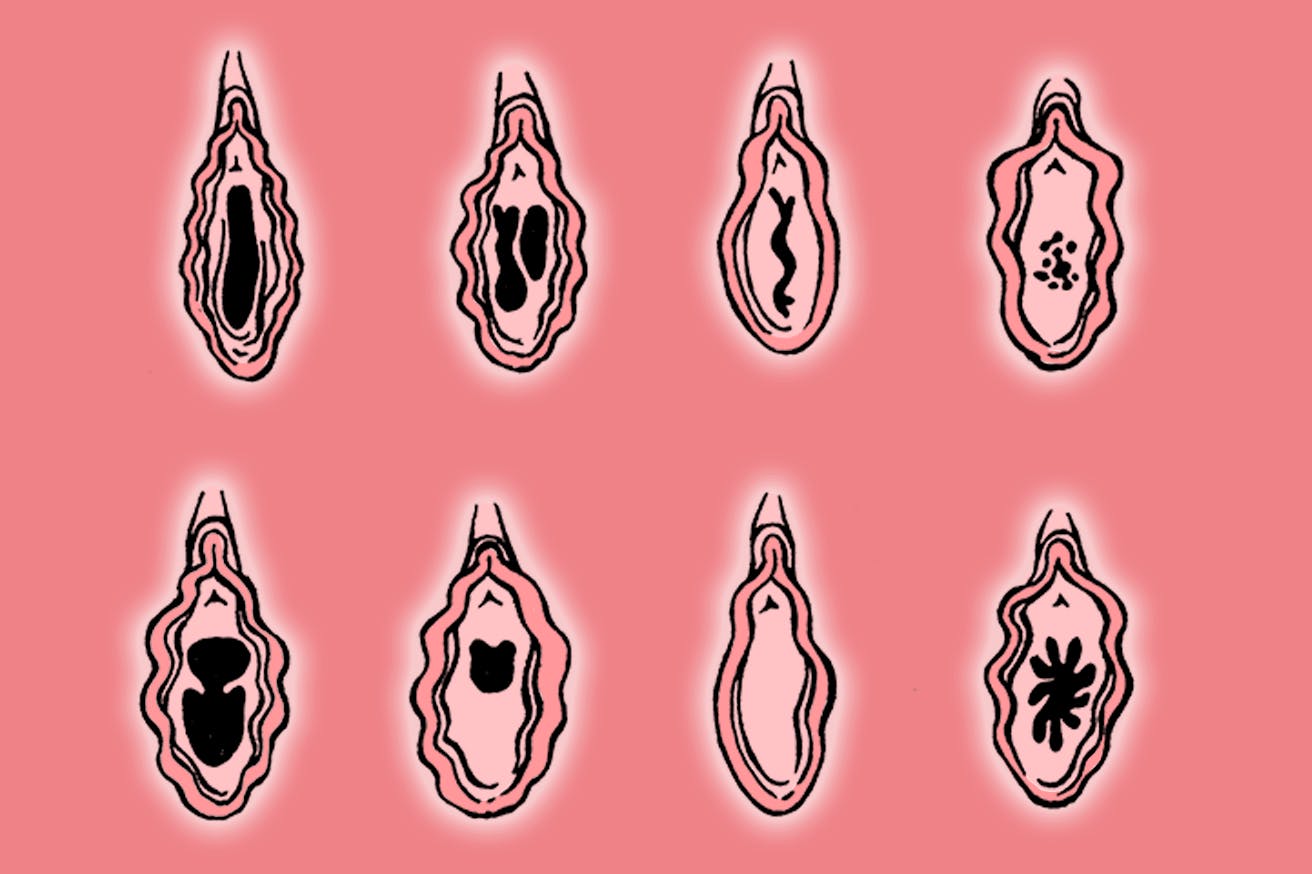
The truth has been known in medical communities for over a hundred years. Yet somehow, these [myths] continue to make life difficult for women around the world.
Nina Dølvik Brochmann and Ellen Støkken Dahl
The Myth
The word “hymen” comes from the Greek god of marriage who was commonly seen as a young person carrying a torch and veil. In many cultures, the hymen has been used as an indicator of virginity for centuries. The widespread belief is that the hymen is layer of tissue which stretches across the vagina like a seal, that it breaks and bleeds the first time a woman has vaginal sex, and that it then permanently damaged or disappears.1
This myth about the hymen feeds into our myths about virginity. There is a lot of weight put on virginity as a pure and honorable thing. That causes an unhealthy appreciation for the hymen which often does not reflect a person with a pussy*’s “virginity.” Virginity is too often narrowly defined as being vaginal intercourse, which then leads to questions of whether people with pussies* who have sex with other people with pussies* are actually virgins or not. According to the vaginal intercourse definition, these people would never lose their virginity. So the definition is faulty at best.
The Truth
The hymen is not a seal; it’s actually a “rim of tissue at the outer opening of the vagina” in a donut or half moon shape with a large central hole. They come in many different shapes with various holes. They’re like snowflakes. A hymen is different in every pussy* that has one. Some have multiple holes, slits, or a single hole. Hymens do not necessarily break or tear. You can have vaginal intercourse without damaging your hymen at all. And they never go away. They are a permanent feature of your vagina. In a study of 36 pregnant cisgender women, only two showed any damage to the hymen. Hymens do not necessarily bleed during a person’s first intercourse. Bleeding could result from tearing in the vagina itself, but about “half of virgins can easily have sex without bleeding.”1
The hymen is just a bit of tissue. It serves no purpose and does not accurately reflect whether a person with a pussy* is a "virgin." The Swedish Association for Sexuality Education proposed that to challenge the traditional notion of virginity we rename the hymen the “vaginal corona.”2
Only in rare cases does a hymen cover the whole vaginal opening. This is called a “imperforate or microperforate hymen.” People who have this will have normal menstrual cramps but blood won’t come out. In these cases, doctors will usually surgically open the hymen to allow menstrual blood out and other things in.2

Why the Myth is a Problem
As badass Norwegian doctors Nina Dølvik Brochmann and Ellen Støkken Dahl, authors of The Wonder Down Under: A User's Guide to the Vagina, put it in their 2017 Ted Talk “The Virginity Fraud:
“The truth has been known in medical communities for over a hundred years. Yet somehow, these [myths] continue to make life difficult for women around the world…. These myths have been used as a powerful tool in the effort to control women’s sexuality in about every culture, religion, and historical decade. Women are still mistrusted, shamed, harmed, and in the worst cases, subjected to honor killings if they don’t bleed on their wedding night. Other women are forced into degrading virginity checks simply to get a job, defend their reputation, or to get married.”
The “virginity check” is usually conducted by a doctors who completely invades the person with a pussy*’s privacy by poking and prodding inside their vagina to see if their hymen is torn or broken. In some cultures, when people with pussies* are thought to have had sex before marriage or to have committed adultery, they are murdered. It is estimated that the year 2000 alone saw 5,000 honor killings worldwide (a conservative estimate).3
Lots of people with pussies* take no chances when it comes to their virginity. Many will get what are known as “virginity quick fixes” like plastic surgery known as “revirgination”, vials of blood which they then pour on the wedding sheets, or even fake hymens. The doctors who perform these surgeries or procedures are often threatened.1
Let’s debunk these myths so they can no longer be used against us! Let’s instead educate ourselves and each other about our bodies as they are, not as we have been told they should be.

Sources
1.
Nina Dølvik Brochmann and Ellen Støkken Dahl. “The Virginity Fraud.” TED. (2017): <https://www.ted.com/talks/nina_dolvik_brochmann_and_ellen_stokken_dahl_the_virginity_fraud>.
2.
Obos Anatomy and Menstruation Contributors, "Renaming the Hymen: Vaginal Corona." Our Bodies Ourselves. (2014): <https://www.ourbodiesourselves.org/book-excerpts/health-article/renaming-the-hymen-vaginal-corona/>.
3.
N. Juth and N. Lynöe, "Zero Tolerance against Patriarchal Norms? A Cross-Sectional Study of Swedish Physicians' Attitudes towards Young Females Requesting Virginity Certificates or Hymen Restoration." Journal of Medical Ethics. 41(3). (2015): 1. <https://dx.doi.org/10.1136/medethics-2013-101675>.


